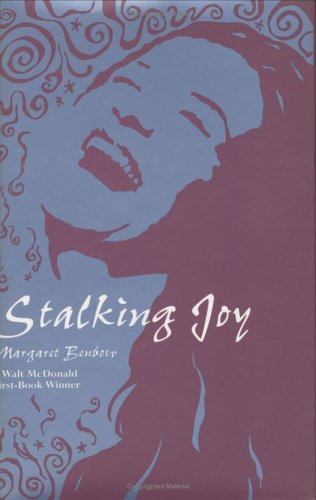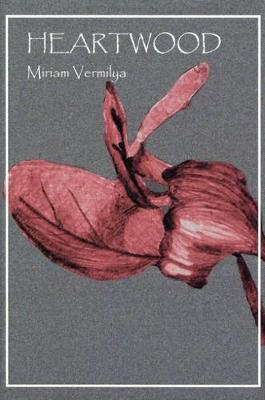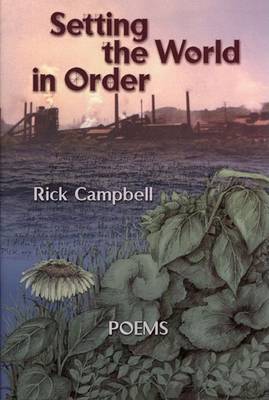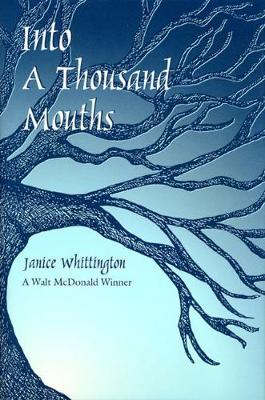Walt Mcdonald First-book Series in Poetry
4 total works
This title is 1997 winner of Walt McDonald First-Book Prize in Poetry. 'A quest, not for fickle happiness, whose pursuit is unworthy, but joy, more durable and much harder won' - Robert A. Fink. 'A wild, wild ride. Fierce and chancy, passionate and bawdy, Margaret Benbow's exuberant first book is nothing short of rapturous, enrapturing...She's drawn to the hot, the dangerous, the lush, the profuse. Given the choice of angel or bogeyman, she'll take the bogeyman every time' - Ronald Wallace. How to tell a bird of prey. Girls weighing less than a hundred pounds, girls who look as though they were raised on milk veal and summer wine, can chew down through the roof and devour whole families. This one wants the man: rank and sexy as an old bobcat. She likes his face, that mess of big prize vegetables with rooty beard and spud chin, red onion cheeks and hot toad tongue: wonderful things might happen, she reflects, if I kiss a toad. She doesn't see his nose, that crackbrain crackheart beak. She doesn't mark his gaze, beautiful blood in the raptor's eye.
Miriam Vermilya was a retired grade school teacher and a well known painter and writer in Greenville, Ohio, where she lived. When she died unexpectedly in January of 1999, the Greenville Writers Group, of which she was a founding member, collected these poems into what became the winning manuscript of the 1999 Walt McDonald First-Book Competition in Poetry. The poems sum up Vermilyas reflections on her life, love, and marriage; the deaths of friends and family members; and, most poignantly, her own aging and death. Her voice is calm, practical, even humorous; never morbid, always generous. By her example she encourages us to feel, while we have time, the beauty of our own joys and sorrows from ""Consider Socrates"". We all say we want it to be sudden: a lightning bolt to the brain, a stutter in the arteries, then sleep, or something like it our hands still clutching the rake or an atlas turned to a map of Afghanistan but wouldn't it be better to know a three-month warning would be nice; you'd want to burn those letters nestled in a shoe box on the closet shelf, finish up the pint of Seagrams hidden in the desks third drawer and trash the butt-sprung underwear a derelict would be ashamed to wear to any accident. Do not go gentle? Miriam Vermilyas poems are indeed gentle in their grappling with the great mysteries of love and death, but they are also tough, sharp, warm, and beautifully shaped. 'These poems leave us with our own terrible, sweet division, caught between regret that their author did not live to see this first book published and gratitude that she left it to nourish and delight us' - Jeff Gundy. '""Heartwood"" is full of poems that convey a fine sense of immediacy as if Miriam Vermilya were thinking the poem through as we are reading it. Her voice is sometimes witty, other times plangent, but always sharpened by a curiosity about what lies ahead. This is a rich collection, packed with fresh, stimulating lyrics' - Billy Collins.
Rick Campbells journey from the banks of the Ohio to the beaches of Florida is a rhapsody, and the music he makes in ordering his world takes us with him, to the headwaters of a new river. 'Rick Campbells poems leave some sweet dirt under your fingernails proof of hard, honest work when the longing of small-town America is not enough. ""Setting the World in Order"" eloquently plots our geographically impossible trajectories. On the way, Campbell can lay down a narrative as spacious as the range of a blues harmonica, every gritty riff dissolving into compassion' - Dionisio D. Martnez. 'Rick Campbells poems move with grace and muscle and music from the Catholic working class of his youth, its factories and foundries, along the rivers of Pennsylvania, Ohio, and Florida, and through the lives of the flesh-and-blood characters of contemporary America. Part prayer, part song, part gritty story, they always dance with meaning and significance; they always wholly embrace the idea of individual presence in a terrible, beautiful world' - Frank X. Gaspar From ""Harmonica Lesson"". Go with the rhythm till you cant get off the track. Like this. Tight-belly staccato, hands cutting and freeing the air, one hard-held bottom line. Play between trains. Keep the wheels in mind. Catch the next one and play all night. In the morning try the whistle. Youve earned it. It should sound like Kansas. ""Setting the World in Order"" is the tenth winner of the Walt McDonald First-Book Prize in Poetry, selected by Robert Fink of Hardin-Simmons University, editor of the ""Walt McDonald First-Book Series"".
In the bone-dry land of mesquites and drought, Janice Whittington has found images that allow her to explore womans place in West Texas and the world from the perspectives of daughter, wife, friend, and mother. Filled with fear and fire, joy and sorrow, dust and water; the poems risk stepping into air, striving to glide like hawks on thermals. '""Into a Thousand Mouths"" is the account of Eve after the fall, after she follows her husband out of the garden and of tilling yield...It is the account of one woman, of all women that female secret of wombs/the ache that folds into the chest/and stays, a wound/nursed into a jewel (""Daughters"")...The connections between women and a needy world seem to be infinite, as the five sections of the book suggest, orchestrating and developing the connections of women to their fathers, their mothers, their grandparents and great-grandparents, to their heritage of pioneer women, to their displacement from the fecund East and their alienation in the seemingly barren West, to their daughters, and to their husbands...[ Whittington's] Eve has planted her jungle west, not east of Eden, and like the trumpet vine that shares orange buds (""Rain Forests"") and the desert plants that put down roots (""The Roots of Desert Plants""), her jungle just might flourish' - Robert Fink, from the Foreword. ""Woman of the Sea"": Did she caulk the cabin cracks with bread dough, the dirt too hard to chip into mud? Did wedding quilts drag the floor, capes for one who had packed away her veils? Did her hands bleed from lye scrubbed into shirts, from breaking manure and cactus into chunks for fire? Did she turn her back to the wind or lift her chin and dream of oceans, wearing her hair loose, bits of coral catching wisps in a red comb, inviting men full of salt to sail through dangers to her arms? Did she one day slip pins from her hair and step into waves of the prairie, searching for shore and singing?



